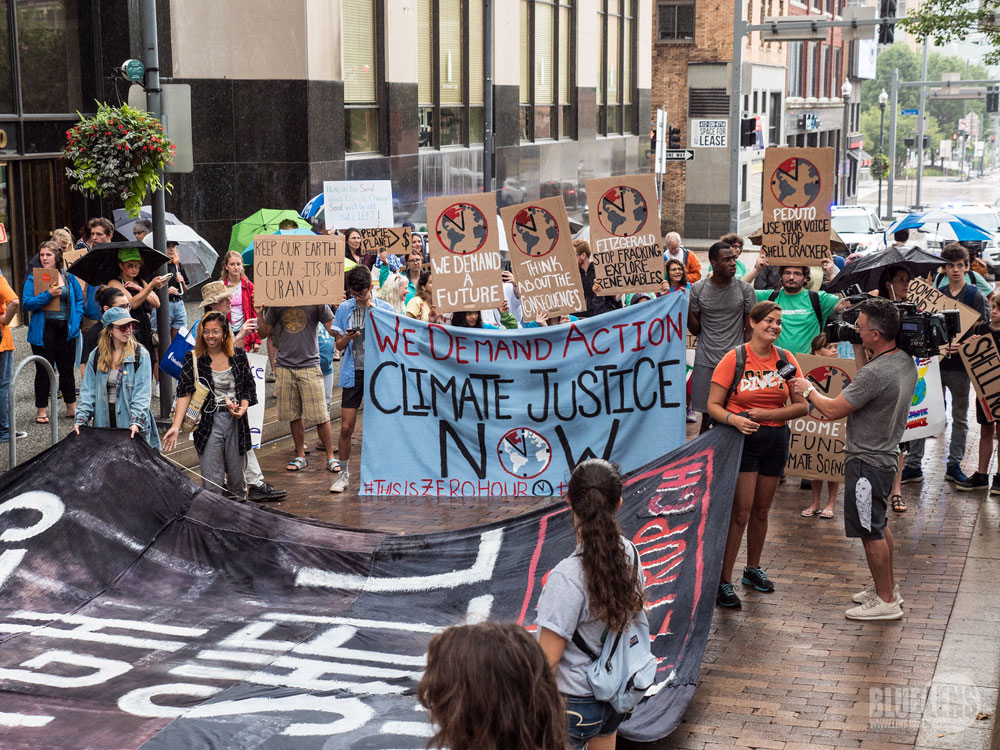
July 12, 2019; Washington Post, Common Dreams, and the Guardian
A new philanthropic venture, the Climate Emergency Fund, has already raised more than $600,000 to support a more aggressive strategy to address the climate crisis. The Fund’s plan, according to Common Dreams, is to raise as much as $600 million in the next few months “by appealing to other rich and powerful contacts around the globe, calling on them to use their immense wealth to help demand that governments take immediate, decisive climate action.”
Recognizing the existential threat from human-caused climate change, the CEF’s founders seek to radically change the prevailing philanthropic paradigm. They seek to support “individuals and organizations that demonstrate the intention and capability of disrupting with urgency the inadequate and immoral gradual approach governments around the world are taking to address the climate emergency.” This breaks with the approach of many traditional funders. The Washington Post described their approach as a boon to activists, since “much of the funding in the climate space traditionally goes to groups advocating for slower and less ambitious policy changes.”
Margaret Klein Salamon, founder and executive director of Climate Mobilization, one of the CEF initial grantees, told the Post, “We need to eliminate emissions as quickly as possible, in 10 years or less, and we need to pull every lever to do that.” A spokesperson for Extinction Rebellion, another of the CEF’s recipients, also welcomed the move, saying, “It’s a signal that we are coming to a tipping point. In the past, philanthropy has often been about personal interest, but now people are realizing that we are all in this together and putting their money forward for our collective well-being.” As reported in the Post, Extinction Rebellion has “blocked roads and major landmarks in London until the British government agreed to declare an ‘environment and climate emergency,’ the first national government to do so.”
CEF co-founder Trevor Neilson, an investor and philanthropist, told the Guardian that most “of the world’s biggest philanthropists are still in a gradualist mindset.”
Sign up for our free newsletters
Subscribe to NPQ's newsletters to have our top stories delivered directly to your inbox.
By signing up, you agree to our privacy policy and terms of use, and to receive messages from NPQ and our partners.
“We do not have time for gradualism,” Neilson says. “History shows us that change comes from the people. It is grassroots movements throughout history that force governments to act when government is resistant.”
CEF, in aiming to raise $600 million, seeks to convince mega-donors that the environment crisis is real and requires radical action that may not be easy or comfortable.
Aileen Getty, heir to the Getty Oil dynasty, is another of CEF’s founding funders. The Fund’s approach speaks to her, she explained in comments to the Washington Post, because “she’s been frustrated with the slow pace of change—and is throwing her weight behind the scrappy young activists who are drawing fresh attention. ‘Even if this approach isn’t going to deliver the outcome we’re hopeful it will, it’s better than doing what we’ve been doing that hasn’t amounted to any change.’” There’s also a sense of inherited guilt in play: “There’s legacy and there’s personal responsibility…I can safely say there’s nothing about the way that I live that I’m not willing to change.”
For the philanthropic community, is this an omen of change or a small anomaly? NPQ has been following critics of philanthropy like Anand Giridharadas, who see donors, particularly large donors, as obstacles who act to protect their status and wealth, not in the public interest. If the Climate Emergency Fund is the start of a new wave of aggressive philanthropy, it will need to mobilize very quickly.—Martin Levine













